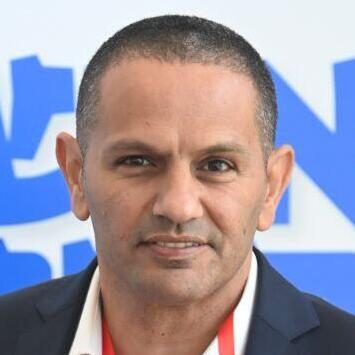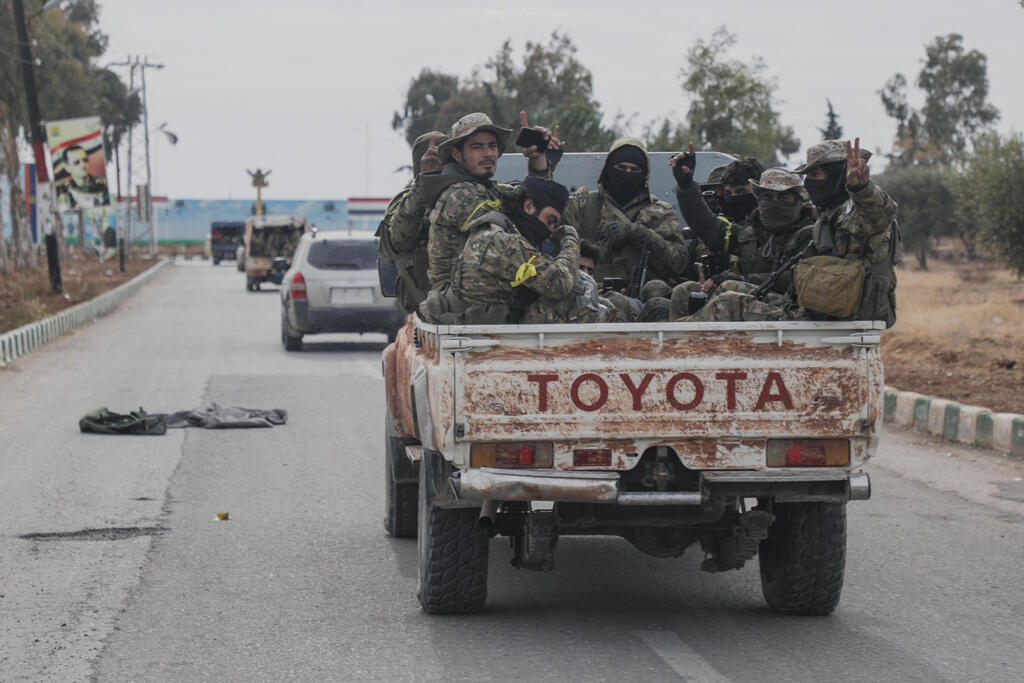Getting your Trinity Audio player ready...
What is happening these days in the Middle East cannot be found even in the most optimistic scenarios heard 14 months after the surprise attack of October 7. The Shiite axis designed to strangle Israel is collapsing before our eyes.
Assad forces leave Homs
Qassem Soleimani's "ring of fire" vision, designed to allow Iran to advance its nuclear program and endanger Israel's existence, is being buried like its mastermind. Iran's Supreme Leader, Ali Khamenei, first lost the gifted commander of the Revolutionary Guards, then his favorite ally Hassan Nasrallah, and now the Assad regime has fallen.
Israeli officials, who are following the events very closely, were surprised by the ease with which the rebels captured more and more key territories. The surprise is greater when considering Assad is supported by powers such as Russia and Iran, but both countries are evacuating civilians from the region, including senior Iranian Revolutionary Guards commanders. In other words, everyone who mobilized a little less than a decade ago to save the Assad regime quickly realized that the game was up.
The new situation presents Israel with a series of issues that require sharp and rapid decision-making, free from euphoria and panic. On the one hand, the fall of Assad means another severe blow to the Iranian project and, in effect, cutting Hezbollah off of its Iranian oxygen pipeline. There are senior IDF officials who compare this to blocking Hamas' buildup in Gaza on the Philadelphi axis. In addition, Kurdish control (with US support) of the Iraq-Syria border could create stability that would prevent the transfer of weapons to Shiite militias.
On the other hand, there are problematic factors emerging from the void left by Assad. First, there are jihadist rebels, and now they are closer to Israel's border than ever before. Second, it is estimated that Syria still has stockpiles of strategic weapons, including chemical weapons, that could fall into the hands of hostile groups. The IDF has already decided to bolster its presence near the border in the Golan Heights including infantry, armor, engineering and artillery forces.
Israel must significantly strengthen its defense on the Golan Heights border and focus on the disturbing scenario of terrorists taking over weapons of mass destruction such as chemical weapons. By placing soldiers on the border, Israel is saying that if lethal weapons are directed against Israel, there will be an Israeli attack. Israel has carried out strikes on Syrian soil and will do so again, but this time possibly without coordinating with the Russians.
Get the Ynetnews app on your smartphone: Google Play: https://bit.ly/4eJ37pE | Apple App Store: https://bit.ly/3ZL7iNv
The IDF sought to examine the preparedness level of the forces in light of scenarios whose likelihood has increased greatly in recent days. The IDF completed an exercise on Saturday in the northern Jordan Valley and southern Golan Heights which practiced the deployment of standby forces by air and land and examined the timing and manner of their response to a security event. Meanwhile, things are happening on the ground. The IDF helped repel an attack by Syrian rebels against a UN post around the village of Hader, near Majdal Shams, hundreds of meters from the Israeli border.
Along with a series of cabinet meetings, the Chief of Staff's arrival at the Syrian border shows that Israel is taking the developments very seriously. "We are working to thwart and prevent threats, but we are not intervening in events in Syria," said Lt. Gen. Herzi Halevi.
At the rate at which things are happening, who knows if it will stay this way.







